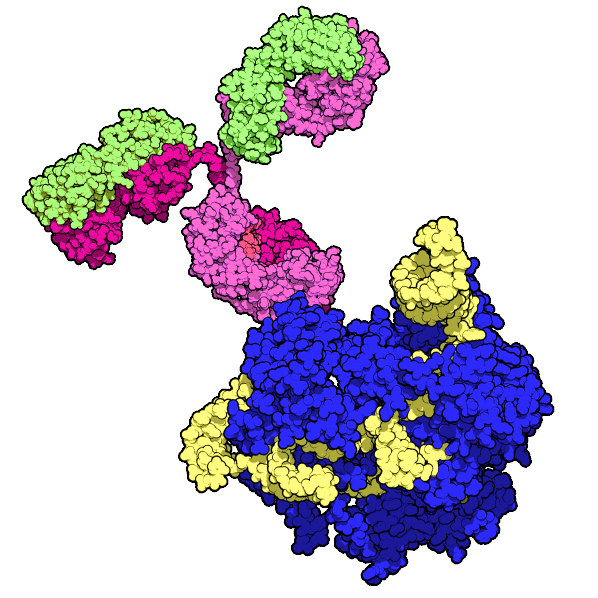Genomics
Institute

Hematopoietic cell reprogramming via receptor-mediated uptake of Cas9 RNP
Project Overview
We are developing a new way to send genome-editing enzymes to specific cells in need of correction, hopefully allowing us to treat blood diseases like sickle cell anemia.
CRISPR-Cas9 genome editing holds incredible promise for treating genetic diseases. This promise cannot be fully realized until several practical barriers are overcome, including targeting of the therapeutic enzyme to the appropriate tissues and efficient delivery to the nucleus of those cells. Myriad therapies would be possible with development of a means to edit human hematopoietic stem and progenitor cells (HSPCs) and T cells conveniently and effectively. But for these cell types, the current technology is limited to cumbersome ex vivo editing. The ability to edit blood components and HSPCs in vivo would be transformative, since it would enable systemic delivery of editing components addressed to specific cell types and drastically increase the therapeutic utility of genome editing.
To achieve this potential of genome editing, we are developing a novel platform for non-toxic, specific delivery of Cas9 to human bone marrow stem cells and immune cells. This technology will rely on tethering Cas9 to an antibody that promotes cell-specific internalization, a process enabled by modifications made to the surface of the Cas9 enzyme. In addition to facilitating straightforward ex vivo and in vivo editing of T cells and HSPCs to remove faulty genes (the “cut” edit), this platform will allow cell-specific delivery of donor DNA to controllably repair the gene (the “paste” edit). The resulting approach for genome editing of human immune cells and HSPCs will permit a more practical and potentially intravenously-administered platform that will enable unprecedented therapeutics for primary immunodeficiencies, HIV, sickle cell disease, cancer, and more.

Photo credit: Ross Wilson
Learn more about the IGI Delivery Collective, a collaborative effort working to develop new technology for delivery of CRISPR-based therapies.